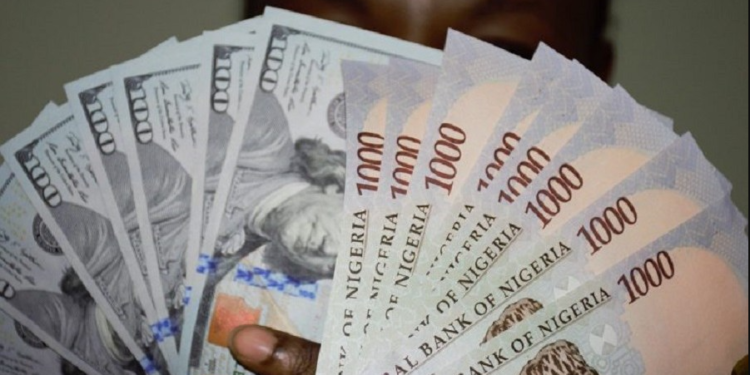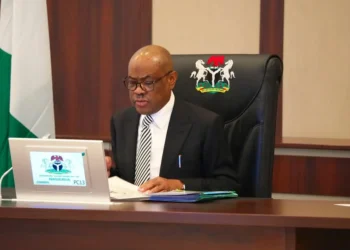The Nigerian naira recorded a modest appreciation against the US dollar at the official foreign exchange market on Friday, closing at N1,626.00/$1, according to data published by the Central Bank of Nigeria (CBN).
This represents a gain from Thursday’s rate of N1,630.50/$1, capping off a turbulent trading week with a slight positive momentum.
The local currency had a mixed performance over the course of the week, reflecting ongoing volatility in the FX market. It opened on Monday at N1,629.00/$1, strengthened to N1,615.00/$1 on Tuesday, weakened sharply to N1,644.00/$1 on Wednesday, before rebounding to N1,630.50/$1 on Thursday, and finally closing the week at N1,626.00/$1.
Analysts say the end-of-week recovery points to a cautious return of investor confidence in the official market, driven by expectations of sustained interventions by the apex bank.
Parallel Market Shows Mild Weakness
In the parallel (black) market, the naira exhibited mild fluctuations but remained relatively stable compared to previous weeks. It ended trading on Friday at N1,624.35/$1, marking a slight decline from Thursday’s rate of N1,621.00/$1.
The week’s performance in the unofficial market followed a similar trend:
•Tuesday: N1,585/$1
•Wednesday: N1,580/$1
•Thursday: N1,621/$1
•Friday: N1,624.35/$1
Experts attribute the marginal depreciation to FX demand pressure, market speculation, and persistent foreign exchange illiquidity, which continue to shape the parallel market dynamics.
Cross-Currency Trends
Beyond the dollar, the naira also showed weakness against other major currencies. On Friday, it traded at:
•N2,090.57/£1 (British Pound)
•N1,815.82/€1 (Euro)
These rates further highlight the ongoing strain on the currency as Nigeria grapples with a complex blend of domestic and global economic pressures.
CBN’s Intervention and Market Outlook
The CBN has continued its interventionist approach, including weekly dollar sales to Bureau De Change (BDC) operators, and efforts to boost FX supply from non-oil exports, in a bid to reduce demand pressure and stabilize the naira.
Commenting on the market dynamics, Alhaji Aminu Gwadabe, President of the Association of Bureau De Change Operators of Nigeria (ABCON), pointed to the “combined effect of local uncertainties, global inflationary trends, and speculative trading” as key drivers of naira volatility.
Similarly, Dr. Muda Yusuf, CEO of the Centre for the Promotion of Private Enterprise (CPPE), emphasized the impact of external market trends and domestic economic fragility on the naira’s performance.
Looking ahead, analysts forecast that the naira may trade within a tight range in the coming week, contingent on FX inflows, CBN liquidity injections, and broader market sentiments. They also stressed that continued efforts to unify exchange rates and curb speculative activities remain critical for achieving lasting currency stability.





















